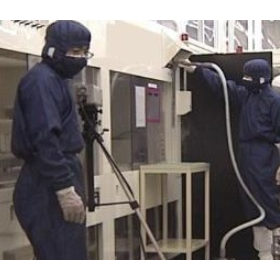Residual Stress Measurement Service | JTL
Evaluation Test > Service > Reliability Test > Product Reliability Test > Residual Stress Measurement Service
Using the principle of X-ray diffraction, residual stress in the sample is measured non-destructively.
The residual stress measurement service utilizes the principle of X-ray diffraction to measure the stress in the surface layer of polycrystalline materials. Stress measurement can be utilized in a wide range of fields, including the calculation of strength based on the shape and safety of products during the development, prototyping, and production stages, as well as the establishment of processes to maintain that strength.
Inquire About This Product
basic information
【Non-destructive Stress Measurement】 Measurements can be performed using X-rays, allowing for non-destructive and low-damage assessments. 【Depth Direction Stress Distribution Measurement】 By etching with an electrolytic polishing device, it is possible to measure the stress distribution in the depth direction (depth profile). 【Micro-area Stress Measurement】 Measurements can be conducted in micro-areas up to φ150μm in size using a collimator. 【Short Delivery Time Support】 With the PSPC detector enabling simultaneous measurements over a wide range of angles, fast measurements can be achieved in a short time. 【Support for Mapping and Teaching Measurements】 High-precision XYZ stages allow for XYZ mapping and teaching measurements. 【Stress Measurement of Large Heavy Samples】 With a sample horizontal goniometer that holds the sample in place and our own heavy-duty sample stage, we can accommodate samples up to a maximum size of φ320mm×215mm and weighing up to 20kg. (*The automatic stage that supports mapping and teaching measurements is limited to 10kg.)
Price information
The price varies depending on the exam content, so please feel free to contact us.
Delivery Time
※The delivery date may vary depending on the exam content, so please feel free to contact us.
Applications/Examples of results
- Residual stress measurement Welded parts of tubes, pipes, frames, and propellers. Machined products such as disks and shafts. Surface-treated products such as gears, pins, crankshafts, and shafts. - Quantitative measurement of structure Fatigue strength estimation of rotating parts and surface plastic processed materials. Detection of abnormal structures in heat-resistant materials. Evaluation of defect characteristics in large forged materials and cast-forged steel products. - Detection of damage during use Fatigue in rotating parts of turbines, bolts of containers, and shafts. Thermal fatigue in turbine rotors and hot parts. Crack propagation in water turbine runner blades. Surface damage in contacts of rollers and gears.
Company information
Our main business is providing technical services to evaluate the reliability of developed products. We not only provide evaluation data in accordance with standards and regulations, but also propose optimal methods, conditions, and equipment for evaluation purposes, as well as design and manufacture original equipment and jigs for non-standard evaluations. Additionally, we handle three evaluation techniques—measurement, testing, and analysis—comprehensively, allowing us to offer complex services that span diverse equipment and suggest more multifaceted evaluation methods.








![High-precision internal residual stress measurement service for plate thickness [Controlled with an accuracy of ±1μm!]](https://image.mono.ipros.com/public/product/image/809/2000255032/IPROS9058075489196730717.png?w=280&h=280)



![Digitizing the electrical properties of copper [Introduction to Contract Measurement Services]](https://image.mono.ipros.com/public/product/image/049/2000172461/IPROS88903164935864455833.jpeg?w=280&h=280)



